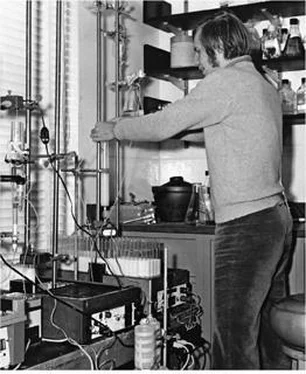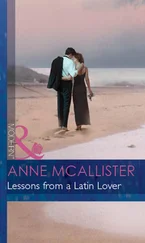James Watson - AVOID BORING PEOPLE - Lessons from a Life in Science
Здесь есть возможность читать онлайн «James Watson - AVOID BORING PEOPLE - Lessons from a Life in Science» весь текст электронной книги совершенно бесплатно (целиком полную версию без сокращений). В некоторых случаях можно слушать аудио, скачать через торрент в формате fb2 и присутствует краткое содержание. Жанр: Биографии и Мемуары. Описание произведения, (предисловие) а так же отзывы посетителей доступны на портале библиотеки ЛибКат.
- Название:AVOID BORING PEOPLE: Lessons from a Life in Science
- Автор:
- Жанр:
- Год:неизвестен
- ISBN:нет данных
- Рейтинг книги:5 / 5. Голосов: 1
-
Избранное:Добавить в избранное
- Отзывы:
-
Ваша оценка:
- 100
- 1
- 2
- 3
- 4
- 5
AVOID BORING PEOPLE: Lessons from a Life in Science: краткое содержание, описание и аннотация
Предлагаем к чтению аннотацию, описание, краткое содержание или предисловие (зависит от того, что написал сам автор книги «AVOID BORING PEOPLE: Lessons from a Life in Science»). Если вы не нашли необходимую информацию о книге — напишите в комментариях, мы постараемся отыскать её.
AVOID BORING PEOPLE: Lessons from a Life in Science — читать онлайн бесплатно полную книгу (весь текст) целиком
Ниже представлен текст книги, разбитый по страницам. Система сохранения места последней прочитанной страницы, позволяет с удобством читать онлайн бесплатно книгу «AVOID BORING PEOPLE: Lessons from a Life in Science», без необходимости каждый раз заново искать на чём Вы остановились. Поставьте закладку, и сможете в любой момент перейти на страницу, на которой закончили чтение.
Интервал:
Закладка:
That evening my dinner with Margot Schutt ended with a surprise twist. At a French restaurant on the North Side, we brought each other up to date on our recent pasts. She was currently working at the Art Institute, where the Sunday afternoon public lectures of my uncle Dudley Crafts Watson had been long appreciated. Though what had always most attracted me about Margot were her almost Jamesian mannerisms, I had not anticipated a Jamesian end to the evening. Over dessert she suddenly asked me if I would have actually gone through with marrying her if she had accepted my advances that spring of ‘57.1 didn't know what to say and the taxi ride back to her flat passed largely in an awkward silence.
The next day I flew on to San Francisco and went down to Stanford to talk science. Then I traveled across the bay to Berkeley, where I stayed with Don and Bonnie Glaser. Two years before, Don had won the Nobel Prize in Physics for his invention of the bubble chamber, causing them to advance their wedding date so that they could fly off together as man and wife to Sweden. In her note of congratulations, Bonnie encouraged me to set my sights on a Swedish princess, suggesting Désirée for both her poise and beauty, as well as having more to say than her two older sisters. So I told them about a telegram from my Caltech friend, the physicist Dick Feynman, wherein he proposed the same scenario with even more irony: “And there he met the beautiful princess and they lived happily ever after.” More seriously we gossiped about my Radcliffe friend Fifi, now a Berkeley graduate student. I picked her up the next evening at her flat off Channing Way, driving
to Spenler's fish restaurant near the water at the foot of University Avenue. There I again saw the good-natured, intelligent personality the memory of which had led me to conclude she would be a most appropriate Stockholm consort. But still haunted by Margot's Jamesian question, I kept our dinner talk light, letting her know that my father and sister happily anticipated being with me in Stockholm. The evening ended with our deciding to see each other again during my planned February visit back to the Bay Area.My forthcoming Nobel address soon preoccupied me at Harvard. Maurice was to give his talk on his King's College lab work confirming the double helix; Francis would focus on the genetic code; and I would talk about the involvement of RNA in protein synthesis. Happily, my Harvard science of the past five years was equal to a Nobel lecture. I gave it a dry run in late November at Rockefeller University, using the occasion to visit the BBC offices in New York to let them tape my recollections of the man Francis was before his great talents had become widely appreciated. By then I had bought the necessary white-tie outfit at the Cambridge branch of J. Press, whose first shop in New Haven had long been purveyor par excellence of preppy clothing to Yale's undergraduates. Soon after coming to Harvard, I had begun getting my suits at their Mt. Auburn Street store, finding their clothes to be among the few available that fit my still-skinny frame. Perhaps sensing my high spirits, the salesman easily persuaded me also to purchase for the august occasion a black cloth coat with a fur collar.
Early on the afternoon of December 4 my sister joined Dad and me in New York for our Scandinavian Airlines flight. Our plans were to stop over for two nights in Copenhagen to see friends Betty and I had made when we lived there in the early 1950s. But after crossing the Atlantic, the pilots discovered that Copenhagen was fogged in. So we found ourselves in Stockholm two days earlier than expected. Bypassing customs as if we were a diplomatic delegation, we were whisked by limousine to the storied Grand Hotel, built in 1874, across from the Royal Palace, onto which looked my room, among the finest in the house. I soon joined my sister and Dad for a herring-heavy smorgasbord, where we lunched with Kai Falkman, the young Swedish diplomat who would accompany us to all our Nobel week engagements.
After a much-needed nap, we all supped together in the rathskeller of a restaurant in the Old Town, whose buildings date back to the fifteenth century. There Kai told us that the youngest of the four Swedish princesses, Christina, wanted to spend a year at an American university, possibly Harvard, following graduation from her Swedish high school. Conceivably she would like to talk with me during my Nobel visit. Naturally, I pledged to make myself obligingly available to explain Radcliffe's unique relation to Harvard.
My sister, Betty, my father, and I upon our arrival in Stockholm in December 1962
Not waking until almost noon the next day, I saw my picture on the front page of Stockholm's Svenska Dagbladet together with a chatty article mentioning my interests in politics as well as birds. Unfortunately, the sore throat that had followed my bad cold of October soon forced me to seek medical attention. So my first view of the Karolinska Institutet complex was of its main hospital, not of its research labs. There I was examined by its leading nose and throat specialist, who
saw nothing worrisome but did reveal he had been a member of the committee that had chosen me for the Nobel. In that official capacity, he greeted me when I arrived at Nobel House the next evening for the reception given by the Karolinska Institutet. This was not a formal event, and I arrived in the pinstripes that I had worn on the air journey to Sweden. The Foundation House also served as the home of Nils Stahle, its executive director, and I was pleased that his pretty, red-haired, unmarried daughter Marlin was at home for the evening, as was Helen, the very blond daughter of Sten Friberg, the rector of Karolinska.
My sister, Betty, watches as Princesses Désirée, Margaretha, and Christina take their seats.
Both girls were later welcome sights at the first formal event of the week, the Nobel Foundation's reception for all the year's laureates. In the grand library of the Swedish Academy, the dominant figure was John Steinbeck, who had arrived in Sweden only that morning. Though his anticipation of the honor had been keen, he was more nervous than happy, worrying about his Nobel address the next evening. William Faulkner's address of 1950 was still remembered with reverence, and Steinbeck was feeling the pressure of expectations.
That evening he and his wife went off to dinner with the Swedish literary intelligentsia while I went with my fellow laureates in science to sup at the elegant naval officers’ mess room on Stockholm Harbor at Skeppsholmen.
The Nobel ceremony, December 1962. From left to right: Maurice Wilkins, Max Perutz, Francis Crick, John Steinbeck, me, and John Kendrew

Francis and Odile Crick brought their own princesses to Stockholm.
The next morning I got a sneak preview of the grandeur of the concert hall as my fellow laureates and I rehearsed the choreography of receiving a prize from the king's hands later that evening. As it usually is for most, this was to be my first experience of white-tie formality, and I was a bit self-conscious about how I looked. Betty, Dad, and I left the hotel at 3:45 P.M. to have more than enough time for me to join the backstage lineup. Precisely at 4:30 P.M. fanfare announced the arrival of the king and queen, who entered with their royal entourage and walked to their front-of-the-stage seats as the Stockholm Philharmonic Orchestra played the royal hymn. Then, with the trumpets again blaring, Max, John, Francis, Maurice, John Steinbeck, and I entered and took our seats near the front of the stage.Before the king awarded each of the prizes, appropriate academicians read descriptions in Swedish of our respective accomplishments. To let us know what was being said, translations of their speeches had earlier been given to us. As the king handed each of us our leather-bound, individually decorated citations and gold medals, he also gave us checks in the amount of our individual shares of the prize money.
Читать дальшеИнтервал:
Закладка:
Похожие книги на «AVOID BORING PEOPLE: Lessons from a Life in Science»
Представляем Вашему вниманию похожие книги на «AVOID BORING PEOPLE: Lessons from a Life in Science» списком для выбора. Мы отобрали схожую по названию и смыслу литературу в надежде предоставить читателям больше вариантов отыскать новые, интересные, ещё непрочитанные произведения.
Обсуждение, отзывы о книге «AVOID BORING PEOPLE: Lessons from a Life in Science» и просто собственные мнения читателей. Оставьте ваши комментарии, напишите, что Вы думаете о произведении, его смысле или главных героях. Укажите что конкретно понравилось, а что нет, и почему Вы так считаете.












